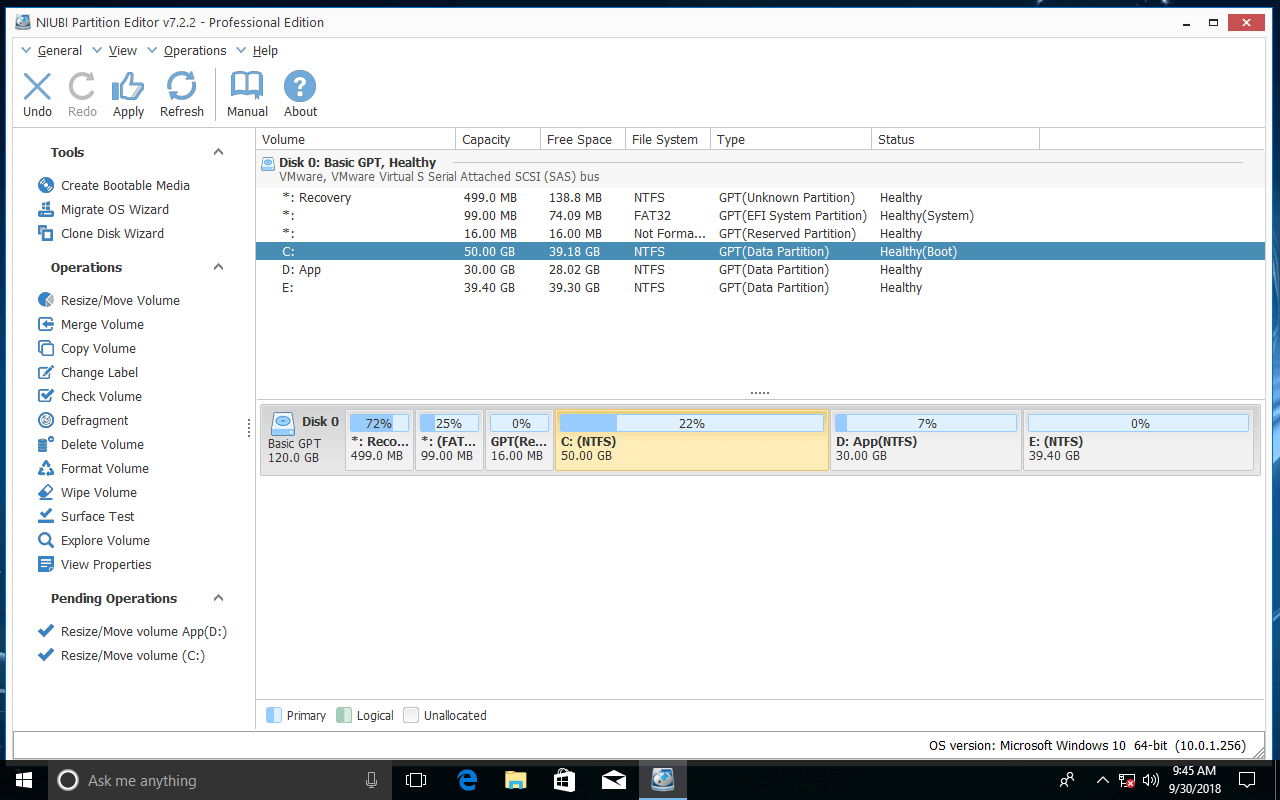
Extend OS partition in Windows 10/11 with free tools.
Right-click the partition you want to resize, then click "Shrink" or "Extend." Windows 10 includes Disk Management to shrink and expand partitions. You don't need a third-party partition manager for basic tasks, although they will often by more feature-rich. This works on other versions of Windows, like Windows 11 and Windows 7, too.
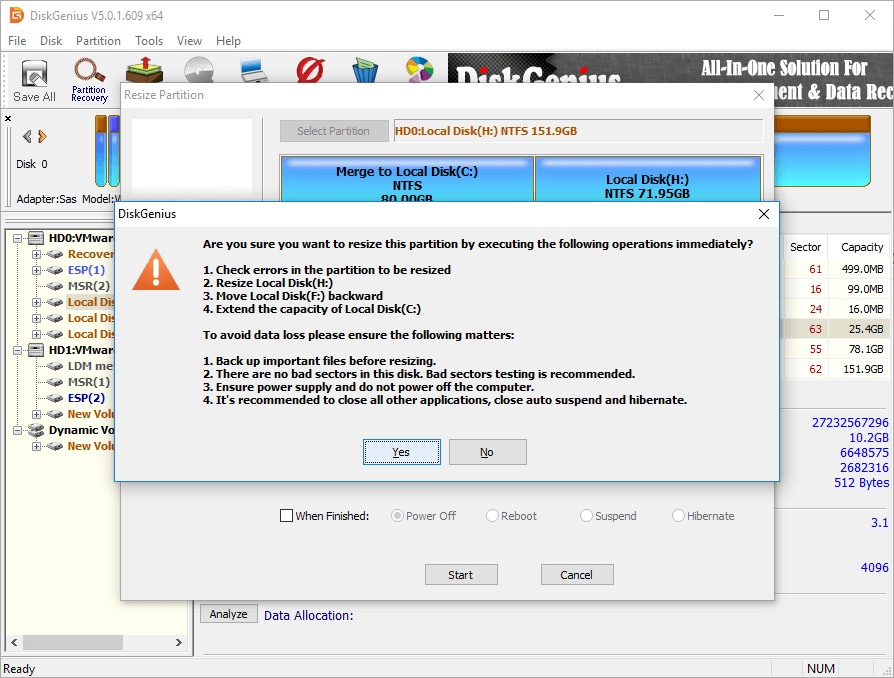
Extend System Partition in Windows 10 with Free Partition Manager EASSOS BLOG
Locate your system partition — that's probably the C: partition. Right-click on it and select "Shrink Volume." If you have multiple partitions on your hard drive, you could also choose to resize a different partition to free up space. Hope the information helps. Please let us know if the issue persist and we will be happy to assist you further.
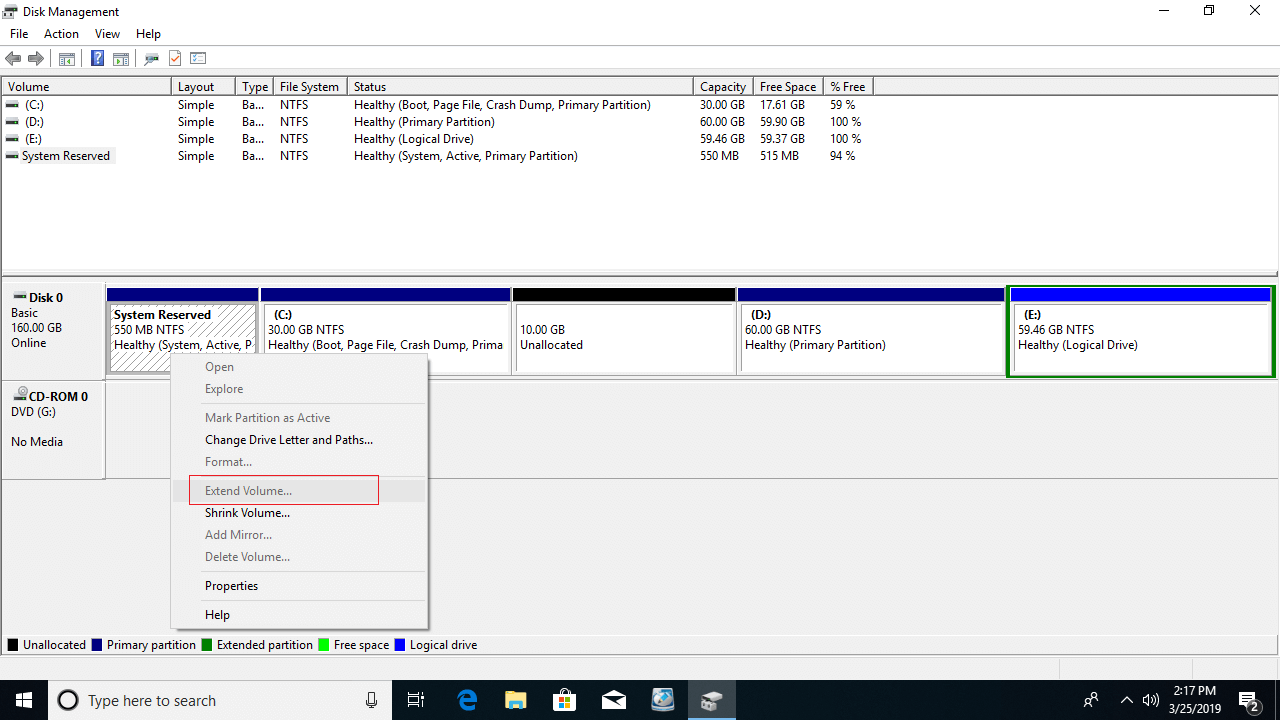
Free tool to extend system reserved partition in Windows 10
How to extend system partition Windows 10 without losing data? Find answers in the following part. 2 Methods to Extend C Drive in a Simple and Effortless Way How to extend C drive on a dynamic disk? MiniTool Partition Wizard helps you extend C drive and manage dynamic disk in an effortless way. Read More
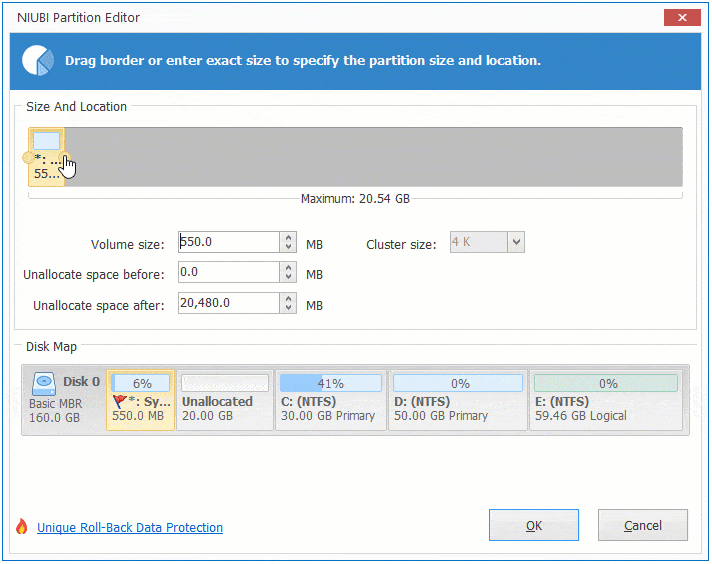
Free tool to extend system reserved partition in Windows 10
1. Install and launch AOMEI Partition Assistant Standard. Right-click the system partition and click "Advanced"> "Merge Partitions". 2. Tick the unallocated space you want to add into the system partition, and click on "OK" . 3. Back to the main interface, click on "Apply" to commit the pending operation.
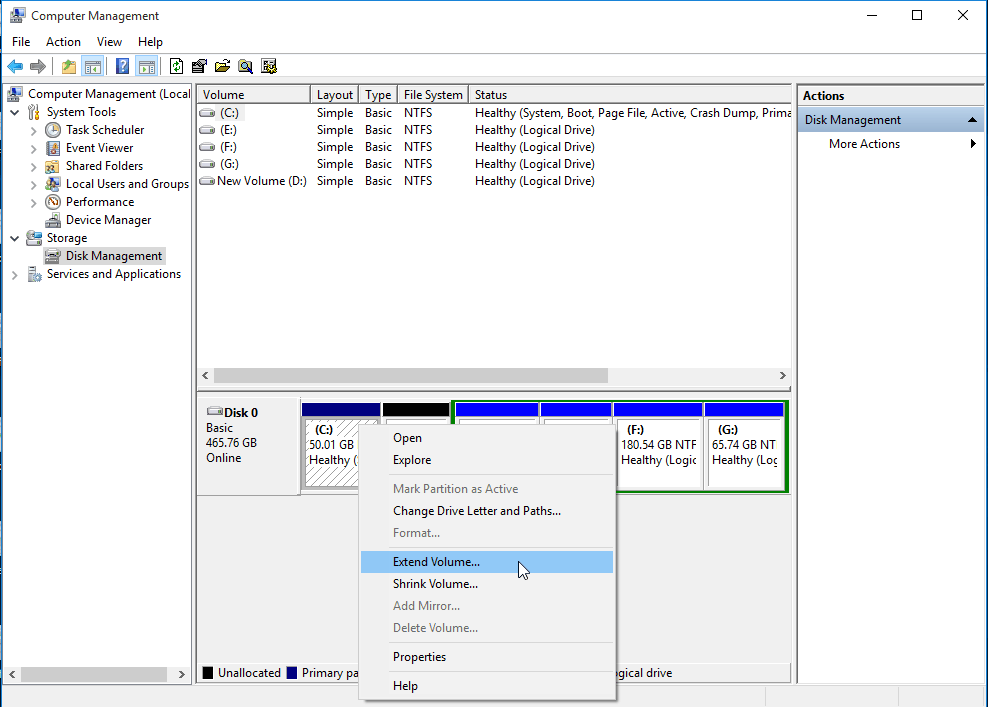
Quickly Resize Windows 10 System Partition without Data Loss
3 Answers Sorted by: Reset to default This answer is useful 2 This answer is not useful Save this answer. Show activity on this post. Windows Disk Management is very limited in feature and can't do this. You need some 3 rd party partitioning tools to resize partitions freely.
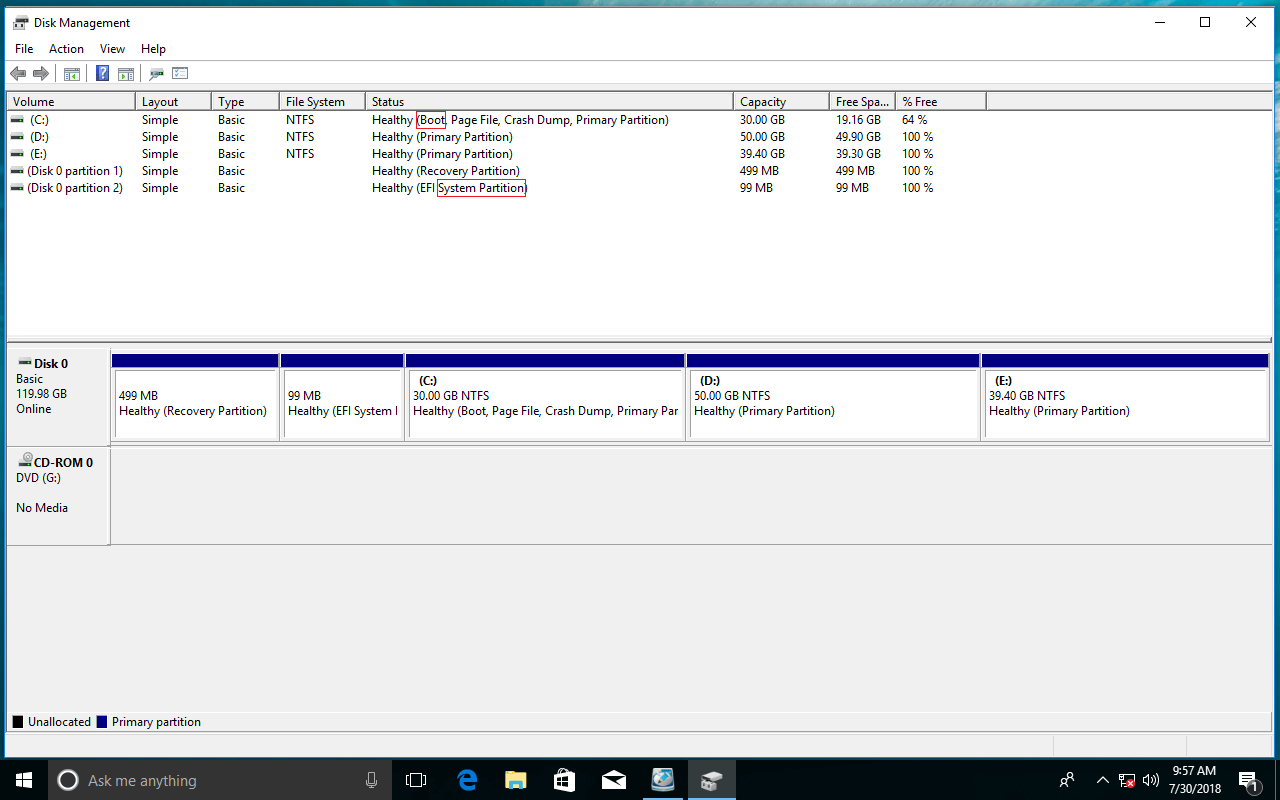
How to extend system partition Windows 10 without losing data
First, let's pour all that unallocated space into "D.". To do this, right-click the volume you want to extend - "New Volume (D:)" in my case - and click "Extend Volume.". Click through the wizard until you get to the "Select Disks" screen, then in the "Select the amount of space in MB" box, type how much space you want.
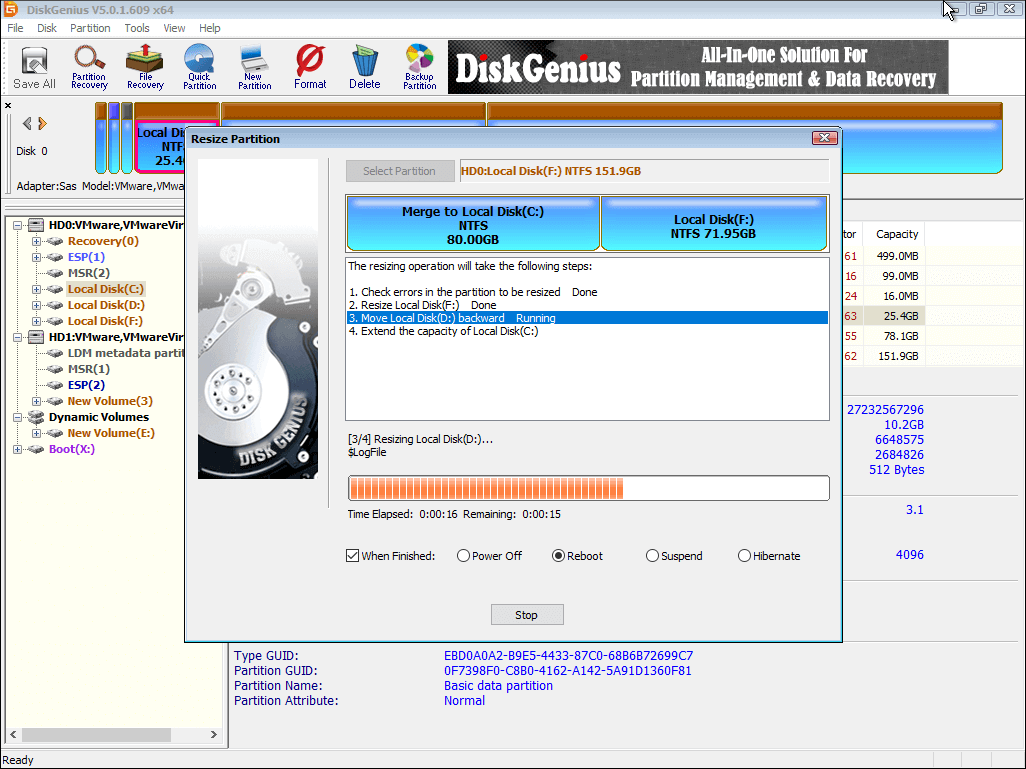
Extend System Partition in Windows 10 with Free Partition Manager EASSOS BLOG
For some reason, MiniTool allowed me to move the partition, such that the unallocated space is now to the right of the partition I want to expand (see picture), but did not allow me to extend it. Windows Disk Manager still doesn't let me do it either. I cannot boot from a disk or USB right now, and the only solutions I can find say "boot from.
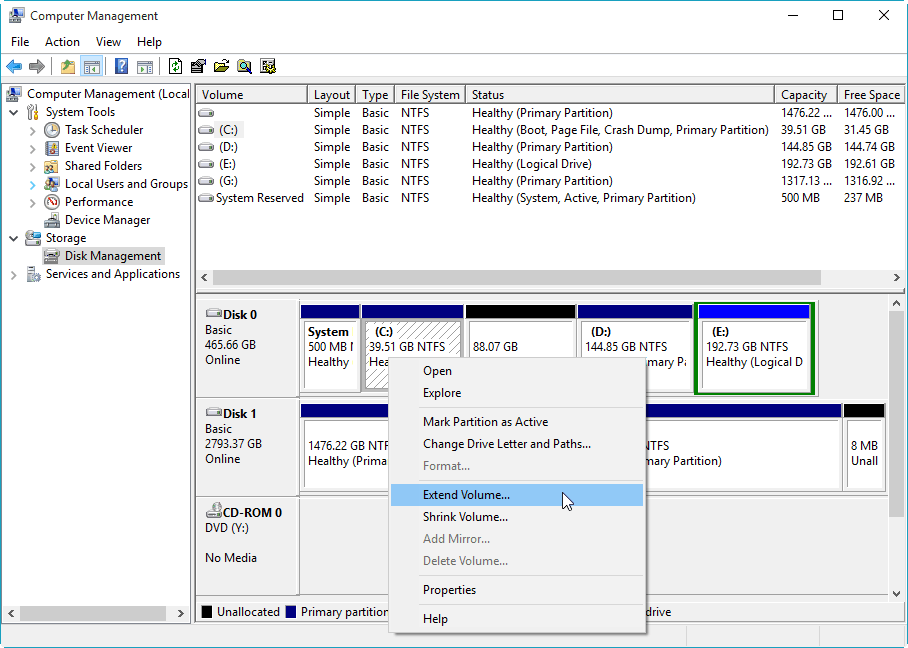
Windows 10 Disk Management The Builtin Disk Partition Manager
Two ways to extend system partition on Windows 10 There are two easy and reliable ways about how to increase system partition C capacity presented. Pick up one according to your own need. Way 1. Allocate free space from one partition to system partition on Windows 10/11
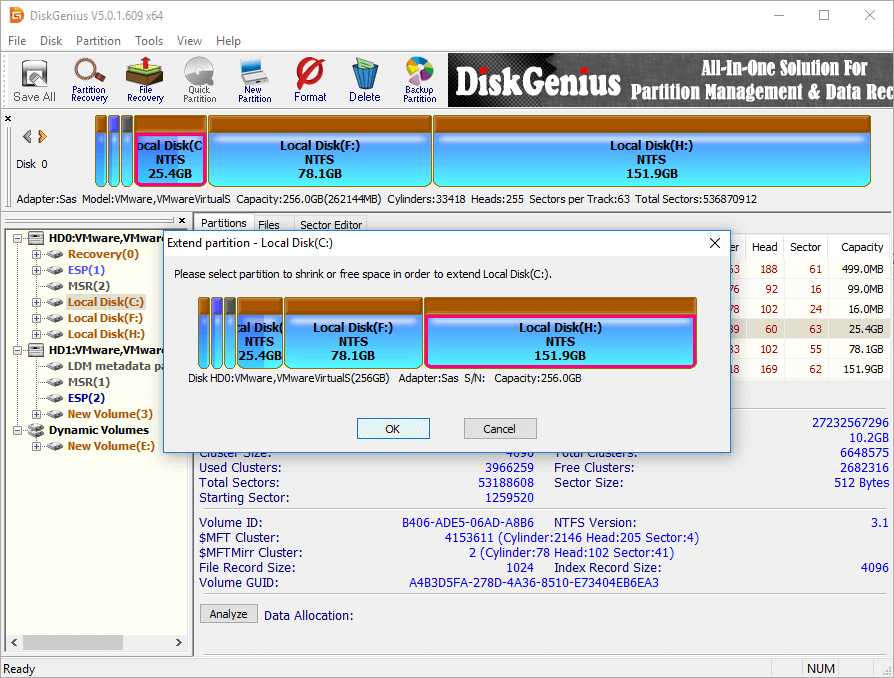
Extend System Partition in Windows 10 with Free Partition Manager EASSOS BLOG
Here you will be able to locate all the drives that are created in your system. • Right click on the non-system partition and then click on "Delete Volume" (makes sure you have backed-up the data). • A prompt will appear, click on "OK". • Then right click on the same drive and click on "Delete Partition", a prompt will appear.
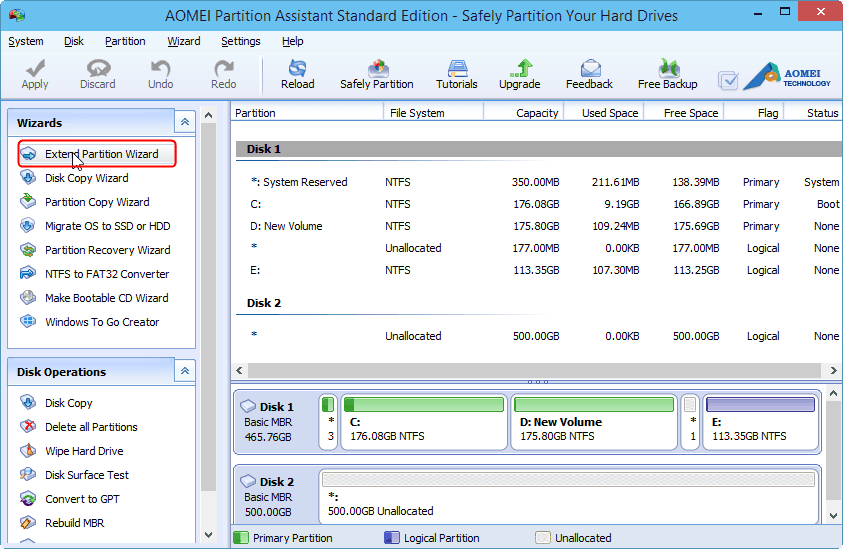
Extend C Drive (System Partition) in Windows 10 with Free Software
Extend System C drive without unallocated space. 1. Right-click a big partition with enough free space on the system disk, select "Allocate Space". 2. Select the system drive at the Allocate Space From (*) To section, and drag the end of System C drive into the unallocated space. Click "OK" to confirm.
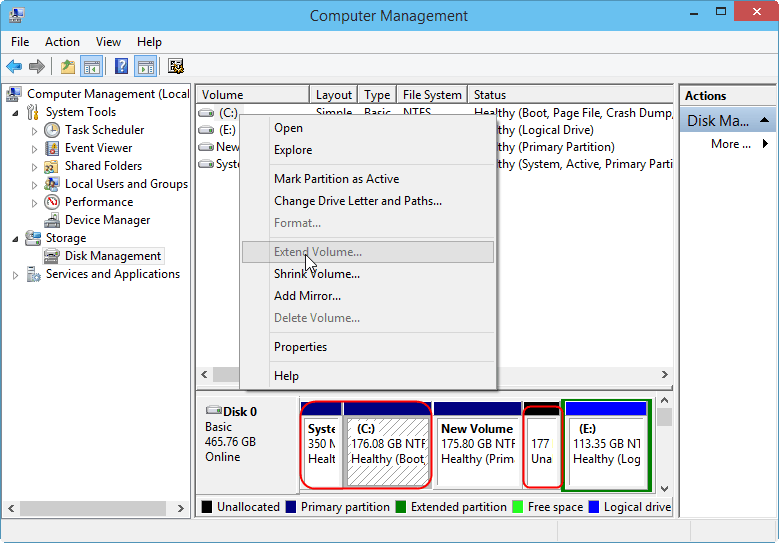
Extend C Drive (System Partition) in Windows 10 with Free Software
How to extend the system partition in Windows 11/10? Professional partition manager - EaseUS Partition Master, Disk Management with DiskPart will help you resize, shrink, and extend partitions in Windows 11/10 efficiently. Free Download Windows 11/10/8/7 100% Secure Updated by Tracy King on Dec 06, 2023 Written by Brithny
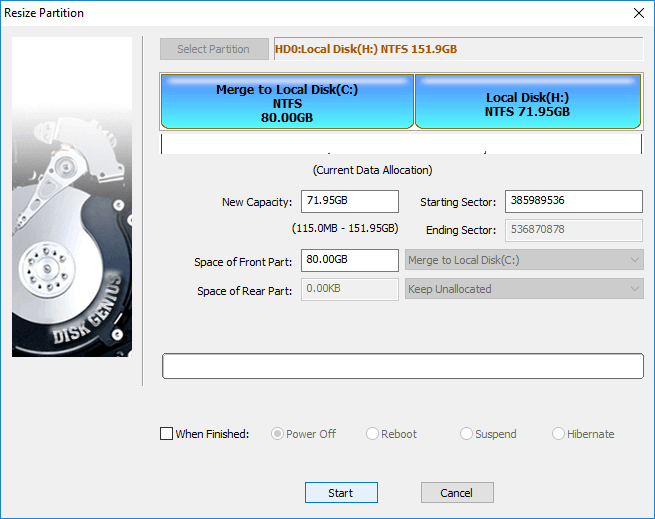
Extend System Partition in Windows 10 with Free Partition Manager EASSOS BLOG
Summary. This update automatically applies Safe OS Dynamic Update to the Windows Recovery Environment (WinRE) on a running PC to address a security vulnerability that could allow attackers to bypass BitLocker encryption by using WinRE. For more information, see CVE-2024-20666.
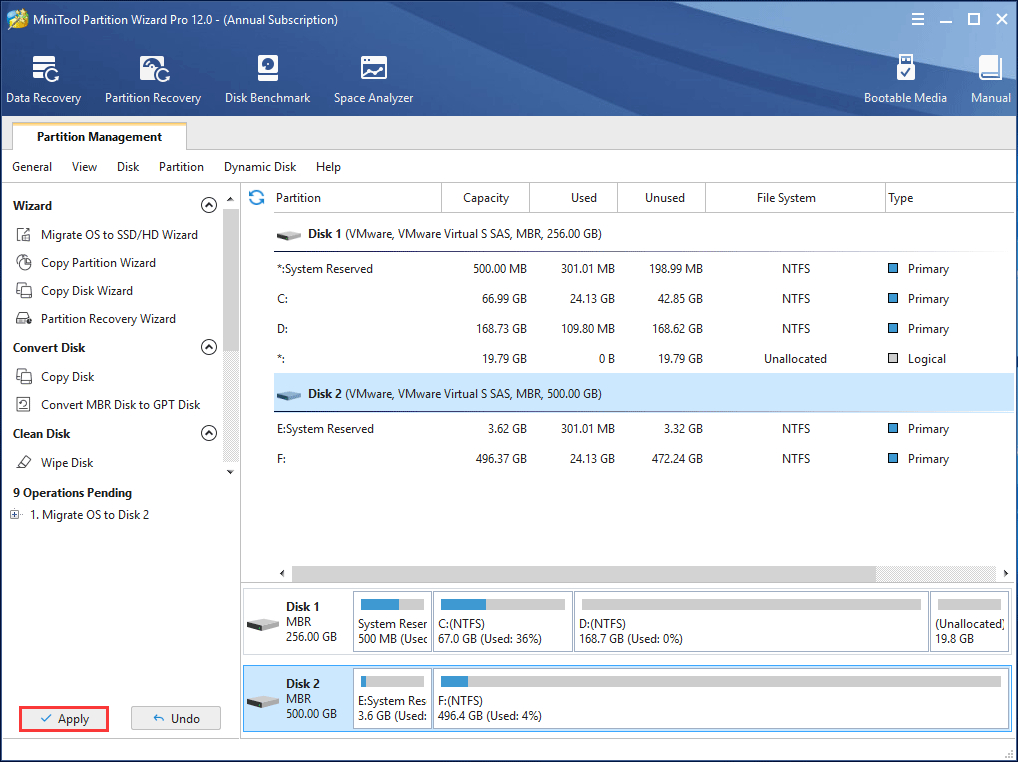
Two Ways to Extend Partition Windows 10 Without Losing Data MiniTool Partition Wizard
Press the Win + X keys together. In the menu, select Disk Management. In Disk Management, right-click on the partition you would like to extend. Select Extend volume in the context menu. If the 'Extend Volume.' command is not available, this indicates that there is no unallocated space available on the drive to extend the selected partition.
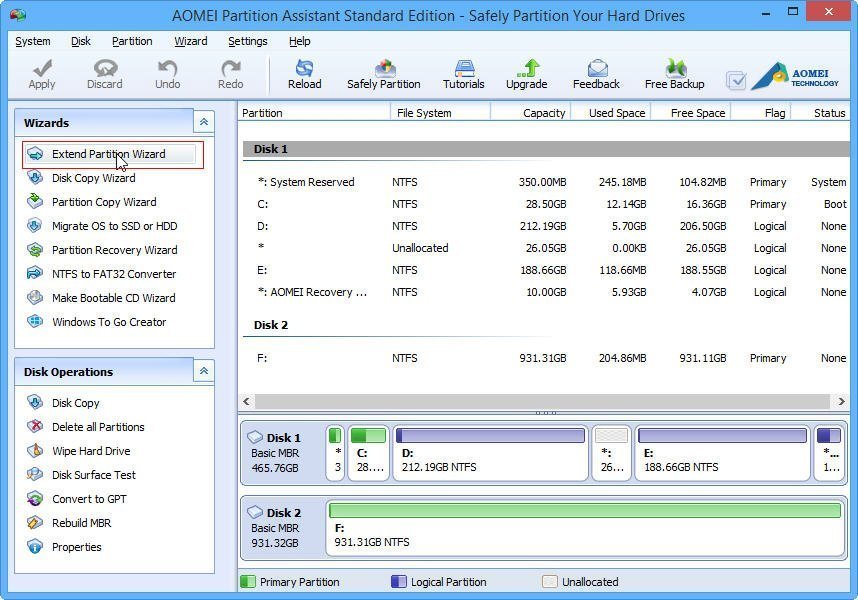
Extend System Partition in Windows 10 without Data Loss or Reboot
Select Extend Volume; Maximum available space in MB indicates how much more you can extend the current partition. Type the amount of MB to be added to the partition using unallocated space in the Select the amount of space in MB box. In this example, I'm going to add all the free space to my system volume;
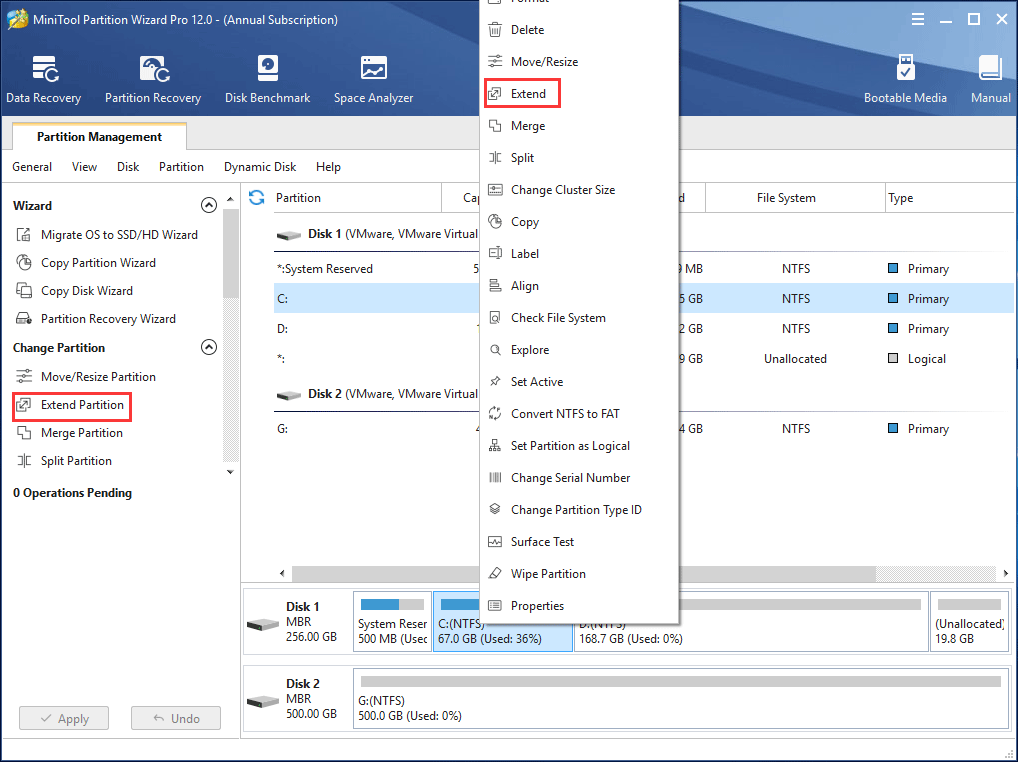
Two Ways to Extend Partition Windows 10 Without Losing Data MiniTool Partition Wizard
1 Open the Win+X menu, and click/tap on Disk Management (diskmgmt.msc). 2 Right click or press and hold on the partition/volume (ex: "F") you want to extend, and click/tap on Extend Volume. (see screenshot below) If Extend Volume is grayed out, then there is not any unallocated space available on the disk to extend the partition/volume into.
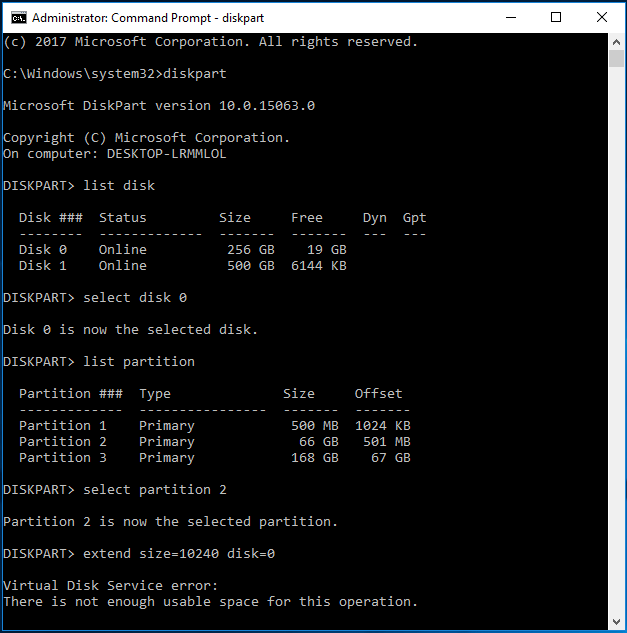
Two Ways to Extend Partition Windows 10 Without Losing Data MiniTool Partition Wizard
2 When I bought the computer the partitioning was already done by the vendor. However they gave it an incredibly little amount (about 50GB). Many apps mandatorily occupy space at system drive, especially Visual Studio, which quickly left me short on space.